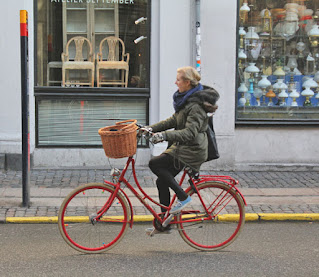by Michael Smith (Veshengro)
A case in point I have come across the other day with an empty bottle of Nero Water (comes in an aluminium bottle) thrown into the trashcan. The bottle is clearly marked with “Refill me” and also with the recycling information.
There would have been a time, and I am of that generation for sure, where reuse (that was before recycling was called recycling and that easy as today) would have been so very obvious with so many packaging products.
Today's generation seems to have need to be told that reuse is possible, or recycling, and how. Many packaging products, such a biscuit tins, and such, including this bottle in question, have instructions, more or less, how to reuse them.
I really had to laugh when on biscuit tins it stated: “Can be reused for biscuits or cakes.” Erm, what precisely was in that tin? Biscuits. So why does someone have to be told that they could use it to put biscuits in it?
I sometimes really wonder what has happened to people in the last 40 years and especially to their minds. Somewhere along the line something went seriously wrong, for sure.
For us of the slightly older generations this came just naturally because, I would guess, we saw our parents and grandparents do it. Often packaging came also with an immediate reuse apparent, such as the glasses in which mustard and, for some time even, Nutella and similar products came in. They were obvious drinking glasses and were reused as such.
As for reuse of biscuit tins; they were reused for biscuits and almost everything else. Many a child wishing to steal a biscuit at grandma's from a tin that so obviously must have biscuits in it going by the picture on the lid was disappointed to find just buttons in there or other sewing gear.
For some reuse one does need some imagination but when the container, or whatever, already has a reuse, or recycling ability, indicated why then does that end up in a littler bin rather than being reused or recycled? Laziness, no doubt, is a main reason for this.
Then again we can even see this at environmental rallies when the recyclables are all in the general litter bins then content of which is not sorted but ends up in landfill. So much for protesting for the environment.
Today's generation is not so much the last generation but very much a lost generation and one that has lost the plot.
© 2023





















